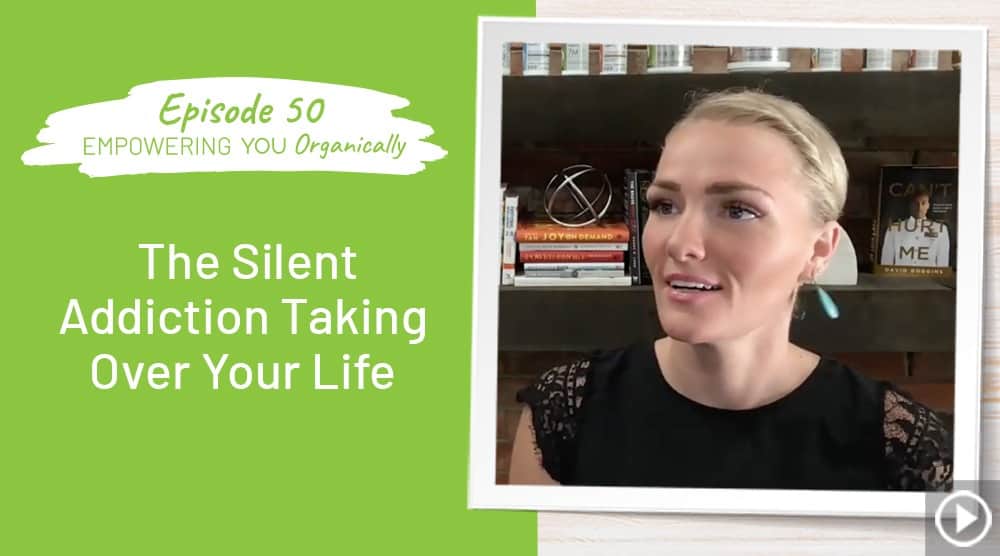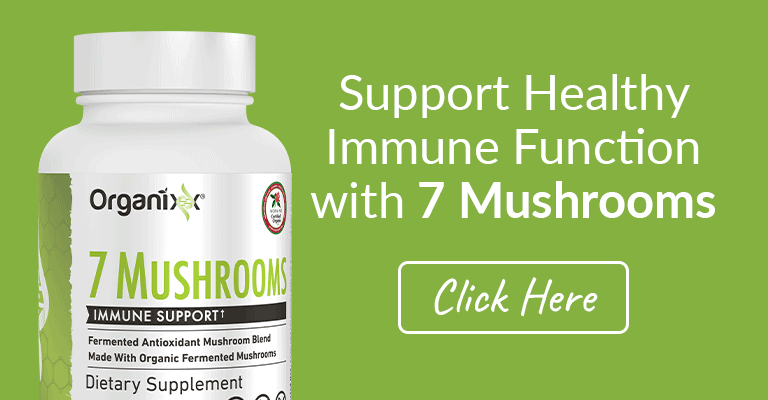Empowering You Organically – Season 7 – Episode 50
Title: The Silent Addiction Taking Over Your Life
Hosts: Jonathan Hunsaker, TeriAnn Trevenen
Guest: None
Description: Most of us don’t see ourselves as being addicted to our technology. Unfortunately, as a society we are. Join us this week for a look at the world of Digital Addiction. We explore what it is, share some disturbing statistics, and look for ways to shake the Tech-Monkey off our backs. Tune in to regain control over your technology!
* * *
Featured Product
This Powerful Anti-Inflammatory Supports a Healthy Heart, Boosts the Thyroid, and Promotes Brain Function
- 3 NATURAL INFLAMMATORY SUPPORT AGENTS:Our revolutionary formula combines Frankincense, Myrrh & organic fermented Turmeric into a powerhouse anti-inflammatory supplement.
- SOOTHE ACHING JOINTS: Each of these ancient treasures has been shown through studies to help alleviate joint pain, soothe aching joints and decrease inflammation.
- INCREASE MEMORY & ALERTNESS:Frankincense has been scientifically demonstrated to support a healthy heart, support normal thyroid function, and promote memory and brain function.
- CLEAN INGREDIENTS:We use only the purest and cleanest ingredients. Our Magi Complexx contains all natural ingredients free from fillers, binders and excipients.
* * *
What is Digital Addiction & Do You Have It?
The Internet is a network of online connected servers, desktop computers, laptop, and mobile phones. And societies are now inside this internet network.
Before the Internet came into existence, to communicate with someone who isn’t in the same room as you, you would have to call them on a telephone. Or if you wanted to send them a note you had to send a letter through snail mail. With the introduction of the Internet, we now have the ability to send and receive messages through electronic mail- virtually instantaneously and without the need of a postage stamp.
We have all been positively affected by the Internet’s improved efficiency of automation or the ease of researching and shopping, but what about the other side of that coin?
Understanding Behavioral Addiction
- Behavioral addiction affects a vast number of individuals and occurs when people find themselves unable to control the frequency, or amount of, a previously harmless behavior such as love, sex, gambling, work, internet and chatroom usage, shopping or exercise.
- Behavioral addictions are considered impulse‐control disorders and share many underlying similarities to substance addictions, including aspects of tolerance, withdrawal, repeated unsuccessful attempts to cut back or quit and impairment in everyday life functioning.
What Statistics Show
Check out the statistics provided by researchers at BankMyCell.com – just for smartphone usage!
- The average smartphone user checks their device 63 times a day.
- 86% of smartphone users will their device while speaking with friends and family.
- 58% of users attempted to limit their usage in the past and only 41% felt they were successful.
- 87% of users check their phone within 1 hour of waking or going to sleep
- 69% of users check their phone within 5 minutes of waking in the morning.
We can all agree that, in general, people are spending too much time on their phones, but how much time are we actually spending consuming content on our mobile devices?
- The average time for people on their phones in the US is 4 hours a day (including tablets). As these devices become more integrated into our personal and digital lives, this increase in time is a depiction of both a culture and technology shift.
- The average user in Brazil spends over 5 hours a day on their device, if you really think about it this is crazy… a fifth of every day is spent on their phone.
How Digital Addiction Affects Us
All the research and studies we examined found that a phone usage dependence can impact both the physical and mental health aspects of your daily life.
- Anxiety – Simply having your phone near you will decrease your productivity, the impact snowballs with the level of the users’ addiction.
- Stress – Higher stress levels were found in business orientated roles where work life is connected to the person’s device e.g. emails
- Narcissism – People on their phones who get addicted to social media will begin to display self-absorption traits derived from posting constantly about their life or selfies.
- Depression and loneliness – mainly stemming from people on their screens with high social media use (higher numbers in teens).
- Attention deficit disorder – The flow of information can impact the brains’ ability to stay focused on one task for more than a couple of minutes
- Sleep deprivation – Impacting your sleep can have long-term mental health, memory and learning skills.
* * *
Subscribe to Empowering You Organically
Never miss an episode!
APPLE PODCASTS SPOTIFY GOOGLE PODCASTS
–
Episode 50 – The Silent Addiction Taking Over Your Life





